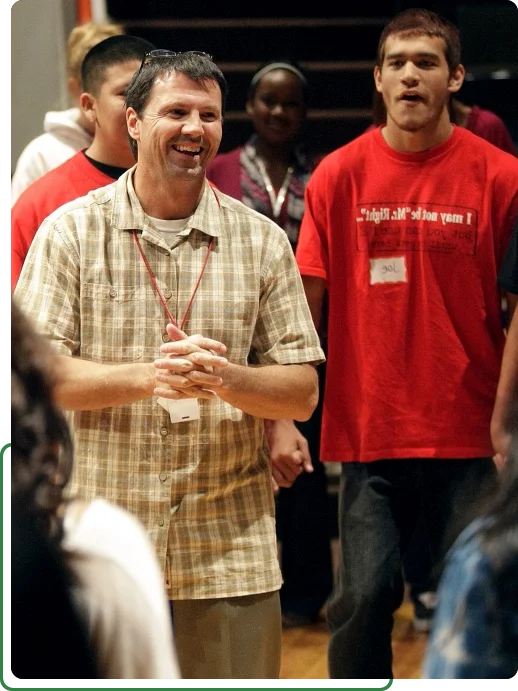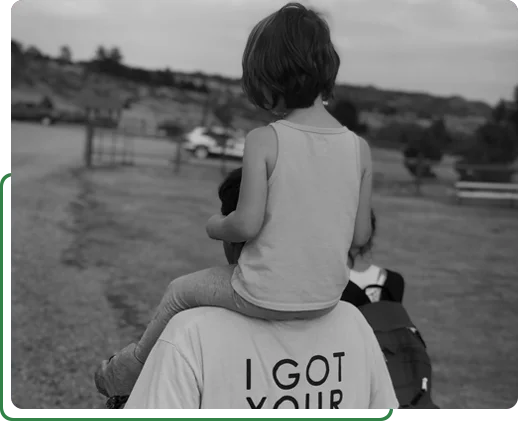

Dr. Peter Wyman, Professor of Psychiatry and Academic Chief of Child and Adolescent Psychiatry, University of Rochester School of Medicine and Dentistry, conducted a study on the peer program in Rapid City during the 2010/2011 school year. His findings showed the students who were mentored had significantly higher connectedness to school, a higher level of engagement at school, and a significant increase in the total number of adults named as a trusted adult. The students also reported lower maladaptive coping attitudes, were less likely to endorse use of negative coping strategies and had positive coping norms around rejecting codes of silence.
This study was repeated in 2017 with Red Cloud, Pine Ridge, Rapid City Central, and TF Riggs high schools with equal results.
Since 2010, Tim McGowan has collaborated closely with researchers Dr. Peter Wyman, Dr. Anthony Pisani, and Bryan Yates from the University of Rochester, NY. These researchers have actively supported the development and implementation of the Social Network Health approach for schools and communities. Tim McGowan stands out as the sole individual trained in this approach for both Air Force personnel and law enforcement through his role as a trainer for University of Rochester research projects, and for school populations and communities.
This close relationship provides the Social Network Health trainers, school advisors and school staff the unique opportunity to access current and unpublished research and practices that enhance programing at the local level.
Adapting a network-informed approach, Social Network Health offers research-based practices and strategies to increase meaningful connections and coping norms. Dr. Peter Wyman has led NIH and CDC-funded research testing programs that disseminate skills for social health through youth peer networks. The high-energy, interactive training improves student connectedness and coping norms, and protective effects spread school-wide, including adult help for suicidal youth. A study aggregating three Randomized Control Trials (N=78 schools; 39,900 students) showed fewer suicide deaths in schools implementing this approach.
Working in collaboration with Dr. Wyman on a Department of Defense-funded project, the Wingman-Connect project tested an innovative suicide prevention program for Airmen-in- training. Wingman-Connect builds group cohesion, belonging, shared purpose, and individual skills to sustain healthy relationships. This was the largest and most effective study of workplace health. This project is currently being upscaled to the entire Air Force.
Promoting more cohesive, healthy training classes was a mechanism that created more cohesive groups that ‘lifted up’ individuals who were vulnerable to mental health problems. Study findings suggest that group training for organizational units may be critical for ‘transfer’ of training concepts and skills into the organization’s culture. Social Network Health’s group training design is ecologically valid and appealing for participants.


Dr. Wyman’s research underscores the efficacy of Social Network Health’s approach, demonstrating that stronger interpersonal bonds within cohesive, healthy groups correlate with reduced mental health issues. In schools where Social Network Health was implemented, groups became increasingly unified, exhibiting a shared commitment to healthy norms, and actively encouraged peers in help-seeking behaviors, fostering a supportive environment where every member feels valued and understood. Further, in groups that are more closely connected and healthier, Social Network Health’s interactive training fostered an even more dynamic relationship network. Within these groups, vulnerable members can draw strength from adaptive members, leading to more changes in who they identify as valued connections.
By implementing the Social Network Health Approach, schools have reported significant improvements in various metrics, including increased daily attendance, higher graduation rates, enhanced identification of Trusted Adults, greater willingness to seek help, and improved connectedness among students and staff. Additionally, school disciplinary issues have notably declined, reflecting the program’s positive impact on the school climate and student well-being.
Additionally, cohesive youth/adult networks may promote more help-seeking for students and for their friends with whom they share a common bond to a supportive adult.
Maximizing protective bonds across school populations, increasing opportunities for group cohesion including integrated youth/adult networks, and promoting influence of youth with healthy coping are critical considerations for future work include identifying new strategies for integrating adolescents’ peer and adult networks and increasing accessibility of competent adults.
Social networks provide the mechanisms for the diffusion of norms and practices and the context for peer group monitoring and support. Network characteristics influence the spread of many health behaviors. By focusing on patterns of relationships, network methods can clarify the contexts in which relationships form and exert influence on others.



